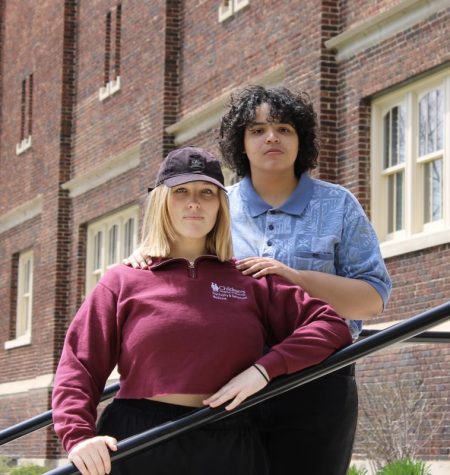Medical marijuana: Can cannabis cure cancer, or a loophole for legal leaf?
March 7, 2016
Over the few decades, marijuana has become one of the most controversial substances in the U.S. In most cases, people’s opinions on it are very black and white, with some believing that it has no place in this country, and others believing that it should be just as available as alcohol. There is however a grey area when it comes to cannabis, and that is whether or not it can be used as a medicine. Could this be an option for cancer patients and many others with traumatic health issues? Or is it just a last ditch attempt for the pro-weed movement to get it legalized? While there isn’t a lot of evidence for either side, the history of the substance’s legality and its present day predicament can help us get closer to an answer.
If you were to ask most people about the history of medical marijuana, most would only be able to tell you about the last couple decades that it has begun to become legal in certain states in the U.S. However, the use of cannabis to cure certain ailments can be traced back centuries before then. In the oldest Chinese pharmacopeia, a record of medicines used, one can find documentation of dàmá (roughly translated to big hemp). It was used as an anesthetic by early Chinese surgeons, which resulted in the medical term for anesthesia to become mázui (cannabis intoxication). As our species has developed and furthered ourselves in the fields of science, cannabis has been continually used for medical purposes. Interest in its uses spread to the west in the mid-1800’s, and by 1937 there were over 2000 different medicines that contained cannabis. However, many things would come to change.
According to most sources, the use of marijuana started to become associated with violence, especially in racist stereotyping of Mexican immigrants. Due to this, the Marijuana Tax Act of 1937 was passed making marijuana illegal at the federal level. After the Civil Rights Movement, the case was reviewed, and the passage of such an act was deemed unconstitutional, and the Act was repealed. Marijuana was still made illegal though by the Controlled Substances Act in the 1970’s, classifying marijuana as a Schedule I illicit substance, the most restrictive category included in the act. In recent years, it has moved down to state jurisdiction rather than federal. It has also been moved down from Schedule I to Schedule II as of March 10, 2015.
In the past few years, the federal laws regarding marijuana have become a lot more relaxed, but there are still legal issues surrounding the substance. While it has been allowed to be used as a cure and pain reliever for patients with very few options left, there is not a lot of evidence that actually shows that it works. Any evidence that can be found is either anecdotal, or based on records from 80+ years ago. In a day and age where there is technology to figure out what effects anything from Cheez-Its to trampoline workouts have on one’s body, we don’t know about the effects of a substance that is being used to attempt to save lives. Due to the fact that cannabis is still a Schedule II substance and deemed illegal by the Controlled Substances Act, there are still legal roadblocks preventing research in support of its use as a medicine. The National Institute on Drug Abuse is the one of the few organizations that can fully research its effects, but most of that is done in search for answers about abuse of cannabis, not use of it to aid health. Because of this, there isn’t enough evidence for anyone to form an educated opinion on the use of cannabis as medicine.
Many people have an unwavering opinion on whether marijuana should be legal or not. As a high school student-athlete, I was very against it, not having been educated on its effects and seeing nothing but negatives involved. After being able to do more research on the subject however, and being able to gain a new perspective, my viewpoint has changed drastically. We as a species are shooting ourselves in the foot if we potentially have a cure for a leading cause of death but aren’t using it. I believe that medical marijuana should be legalized so research can be done, and medication can be legally prescribed and safely distributed to patients. If we have a potential solution for one of our nation’s biggest health issues, let’s use it.

















